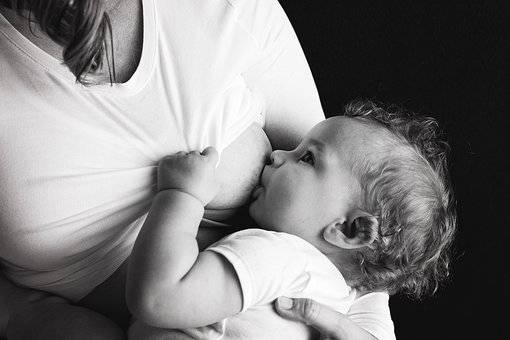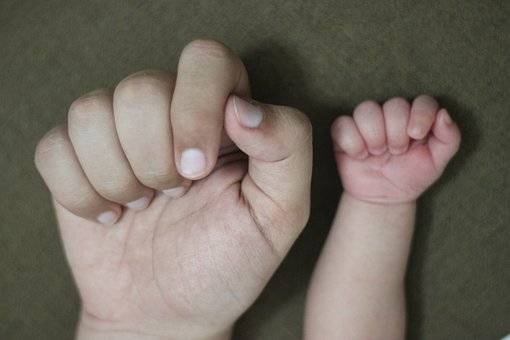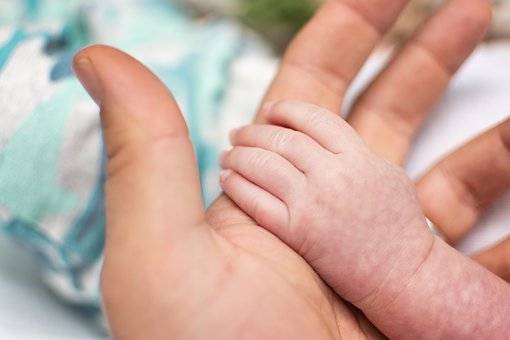A woman’s body undergoes a certain amount of changes upon becoming a biological mother to a child. And out of all, the most highlighted one is her body undergoing the period of lactation or formulating breast milk for the newborn. Now you might have come across many asking, “is breastfeeding important?” Well, there are multiple answers with scientific theories backing them up. Most importantly, breastfeeding one’s milk does help the mother keep her baby healthy. Also, there are numerous other psychological breastfeeding benefits for baby and mother. Continue reading, and you will be able to know more:
Positively impacts the psychological functioning of the child
The first on the list, “breastfeeding benefits for baby and mother,” is a study focusing on the impacts of breastfeeding on the child’s cognitive behavior, socio-emotional growth, and brain development.

The fatty acid contained in breast milk does help with the improvisation of cognitive performance and myelination (white matter growth). Also, the children who received adequate breast milk did showcase improvised socio-affective behavior. And the research team is connecting this particular phenomenon with oxytocin. That does help keep avoidance behavior and stress under control. Also, in mothers, it does help with controlling behavior and psychology.
Helps with the brain development of a premature baby
Every year more than 15 million babies are born prematurely. The Cerebral Cortex, which is necessary for appropriate thinking and learning, is not completely evolved in their brains. And that is the biggest cause of deformities and death among newborns. However, these children born early are most likely to face problems throughout their lives. This includes cerebral palsy, behavioral issues, impairment in sight and hearing, and other learning complexities.

To find a way out, researchers from the University of Edinburgh did come up with a study (part of Theirworld Edinburgh Birth Cohort) scanning the brains of 212 babies. Among the newborns, 135 were born before 32 weeks of the scheduled date, and 77 were born on their actual due date. The team went on to collect information about the feeding process of babies within the neonatal intensive care unit. Also, they did go on to perform brain scans of the babies from 40 weeks of conception.
Now the best part is the babies who did receive ample amounts of breast milk from their mother, or any donor had a mature cerebral cortex compared to the ones receiving less. The team did have a supportive theory. Breast milk contains an appropriate amount of proteins, fats, minerals, and other soluble that help develop immunity and the brain.
The mother finds it easy to deal with postpartum depression
For the longest, “The American Academy of Pediatrics” and The World Health Organization” have been recommending that mothers breastfeed their children for up to six months. That is because the ingredients in breast milk do protect the young ones from various diseases. Until now, another study explained in the “Journal of Women’s Health” was able to join a positive link between the mother’s mental health and breastfeeding.

Breastfeeding mothers have reported their mental health, with diminished anxiety, stress levels, and overall mood upliftment. With continued feeding of their child, the mothers were able to notice stability in their sleep patterns and blood pressure levels. Also, the best part is, breastfeeding does help release the “love” hormone Oxytocin, allowing the baby and the mother to indulge in a sweet bond.
Creates a genuine bond between the mother and the baby
Another study did include infants aged six years from the “Jintan Child Cohort Study” (China) song with their parents. The measures of comparison remained simple:
- Children who received exclusive breastfeeding for a quality time and active bonding with their mothers.
- Children that have received breastfeeding in the absence of active bonding.
- And last were those who have received neither of the both.

Now as per the findings, children who did receive adequate breastfeeding and the mother also did involve in active boding were at the lowest risk of being prone to behavioral disabilities. The researchers did conclude that maternal bonding and fatty acids do help with neurodevelopment in the early stage of childhood. Also, it does protect children from depression, somatic complaints, and anxiety.
Breastfeeding helps control childhood obesity/overweight
Adequate breastfeeding does help control obesity and overweight in children, essentially of the primary school-going age. The research did find breastfeeding in the first four months of birth does help eliminate chances of obesity in the later part of childhood. However, countries, where the concept of obesity and breastfeeding is not socially patterned had less or no essential impacts. Also, no significant effect came to notice between the siblings. The authors finally did conclude that breastfeeding can diminish the effects of obesity and overweight by only 10%.
Other facts concerning breastfeeding benefits for baby and mother

Apart from the ones mentioned above, here is a list of some interesting facts concerning the breastfeeding benefits for baby and mother:
- Babies whose mothers breastfeed in the correct way are less likely to develop asthma, SIDS (Sudden infant death syndrome), obesity, and diabetes (type 1).
- These babies are also less prone to stomach bugs and ear infections.
- Breastfed babies have a strong immune system gaining adequate protection from illness.
- For mothers, breastfeeding helps with the elimination of cancer, diabetes (type 2), and high levels of blood pressure.
- There are a whole lot of antibodies packed within breast milk that does help the child fight off bacteria and viruses.
- The colostrum, or the first milk, is packed with IgA (immunoglobulin A) and other antibodies.
WHO breastfeeding initiative – Breastfeeding benefits for baby and mother
The World Health Organization and UNICEF, together, did come forward with their “Baby Friendly Initiative” in the year 1991. The main aim was to promote, protect and support breastfeeding as per the “10 steps to successful breastfeeding” by WHO.
The bond between a mother and her child is special. A mother holds the child in her womb for nine months and feeds them until the latter becomes independent. Out of all the special moments between a mother and a child is the lactation period. Where the mother and the child get to bond over breastfeeding. Also, breastfeeding the child in the right amount does help with immunity and stamina building, making the child less prone to unwanted diseases.



